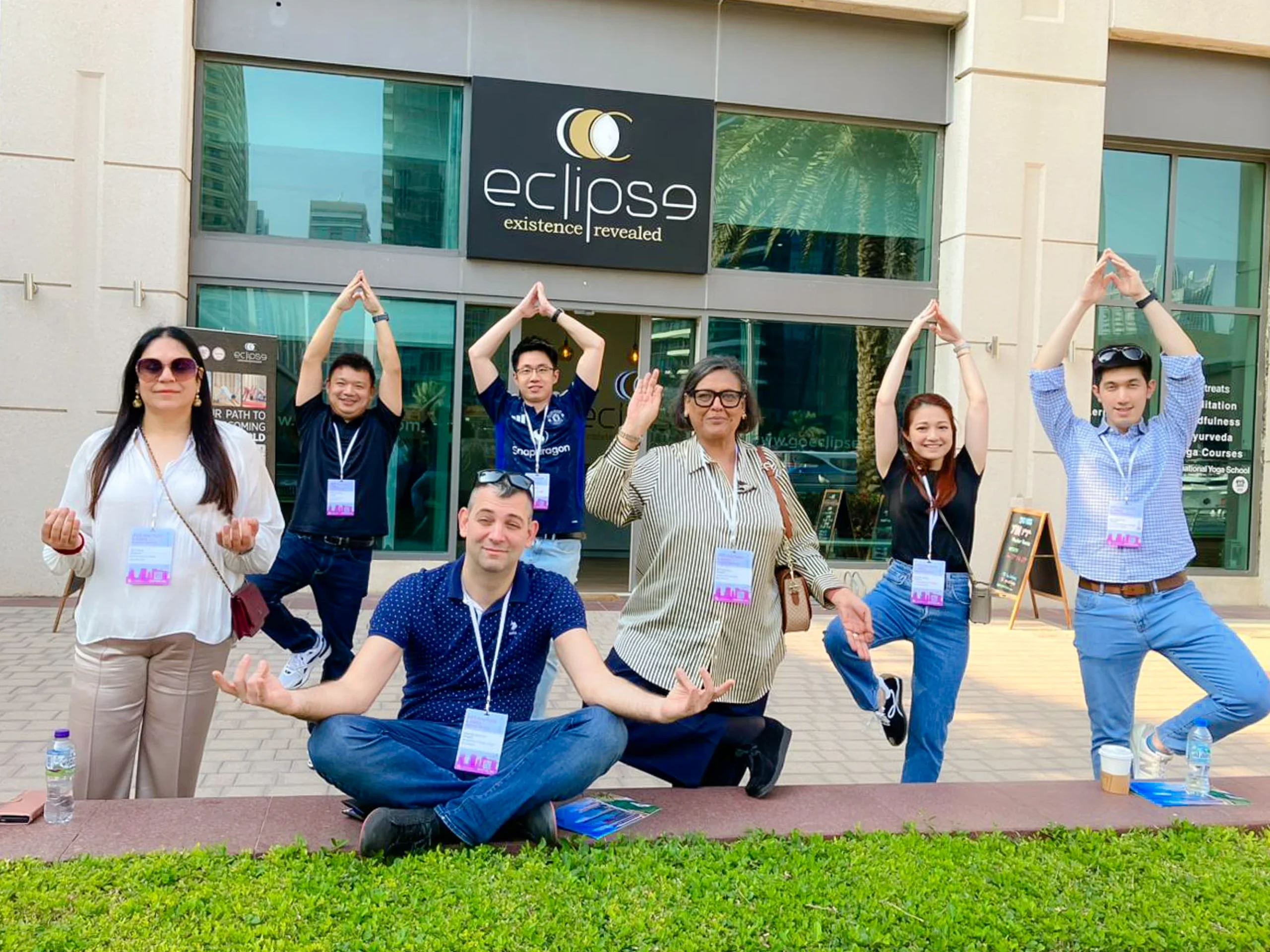The traditional workplace culture is often focused solely on technical skills and experience. However, in today's dynamic and collaborative work environment, emotional intelligence (EQ) is emerging as a critical factor for individual and organizational success. Here at BoredroomX, a leading team-building company in Dubai, we believe that fostering emotional intelligence within your organization can lead to a happier, healthier, and ultimately more productive workforce.
This blog explores the concept of emotional intelligence and its significant impact on the workplace. We will delve into the benefits of building an emotionally intelligent workplace, explore strategies for developing EQ in your employees, and provide valuable resources to help you get started.
What is emotional intelligence, and why does it matter at work?
Emotional intelligence (EQ) is often described as a set of skills that allows us to understand, use, and manage our own emotions in positive ways to achieve our goals. It also encompasses the ability to understand, empathize with, and influence the emotions of others. While IQ (intelligence quotient) focuses on cognitive abilities, EQ focuses on emotional and social skills. Here's a deeper dive into why EQ is crucial in the workplace:-
Improved Communication and Collaboration:
- Effective Expression: Emotionally intelligent individuals are better at expressing their thoughts and feelings clearly and concisely. They can articulate their ideas confidently and persuasively.
- Active Listening: They are also skilled at active listening, paying close attention to what others are saying and demonstrating genuine interest in their perspectives. This fosters a more open and collaborative communication environment.
- Navigating Disagreement: When faced with disagreement, emotionally intelligent individuals can communicate their point of view respectfully and constructively. They can also acknowledge the other person's perspective, leading to more productive discussions and problem-solving.
-
Stronger Relationships:
- Building Rapport: EQ allows individuals to build rapport with colleagues quickly and effectively. They can identify common ground, find places of connection, and create a sense of trust and mutual understanding.
- Social Awareness: Emotionally intelligent individuals are attuned to social cues and nonverbal communication. They can pick up on subtle emotional signals and adjust their behavior accordingly, fostering more positive social interactions.
- Conflict Resolution Skills: EQ equips individuals with the skills to navigate conflict effectively. They can identify the conflict's root cause, manage their emotions during disagreements, and find solutions that work for everyone involved.
-
Enhanced Conflict Resolution:
- De-escalation: Emotionally intelligent individuals can de-escalate tense situations by remaining calm and composed. They can avoid using inflammatory language or making personal attacks, fostering a more constructive environment for resolving conflict.
- Empathy and Understanding: By empathizing with the other person's perspective, they can understand the underlying emotions driving the conflict. This allows them to address the root cause of the issue rather than simply focusing on the surface-level disagreement.
- Finding Win-Win Solutions: EQ allows individuals to find solutions that address the needs of all parties involved. They can be creative and focus on achieving a mutually beneficial outcome.
-
Reduced stress and improved well-being:
- Emotional Regulation: Emotionally intelligent individuals are better equipped to manage stress and difficult emotions healthily. They can identify their triggers, develop coping mechanisms, and avoid letting their emotions control their behavior.
- Positive Outlook: They can maintain a more positive and optimistic outlook by managing their emotions effectively. This reduces stress levels and contributes to overall well-being.
- Resilience: EQ can help individuals bounce back from setbacks and challenges more effectively. They can learn from their mistakes, maintain a positive attitude, and move forward with greater resilience.
-
Increased motivation and engagement:
- Self-motivation: Emotionally intelligent individuals are better at motivating themselves. They can set clear goals, identify their strengths and weaknesses, and maintain a positive focus on achieving their objectives.
- Motivating Others: They can also effectively motivate and inspire others. By recognizing and appreciating the contributions of their teammates, they can create a more positive and engaging work environment.
- Emotional Agility: EQ allows individuals to adapt to change and navigate challenging situations more effectively. This fosters a sense of control and purpose, leading to increased motivation and engagement.
-
Effective Leadership:
- Inspiring Teams: Emotionally intelligent leaders are able to inspire and motivate their peers. They can create a shared vision for the future, communicate goals clearly, and empower team members to contribute their best work.
- Building Trust: By demonstrating empathy and understanding, emotionally intelligent leaders build trust with their people. This creates a more supportive and collaborative work environment.
- Effective Decision-Making: EQ allows leaders to make sound decisions by considering not only the facts but also the emotional climate of the team. Take the needs and well-being of their teams into account, leading to more effective decision-making.
Building an Emotionally Intelligent Workplace: A Multi-Faceted Approach
While some individuals naturally possess higher levels of emotional intelligence, EQ can be learned and developed over time. Here are some strategies to cultivate an emotionally intelligent workplace:-
Promote self-awareness:
Encourage employees to reflect on their own emotions and how they impact their behavior. Self-awareness workshops or mindfulness training can be valuable tools in this process. -
Develop Emotional Regulation Skills:
Help employees develop healthy coping mechanisms for managing stress and difficult emotions. Stress management workshops or training on emotional regulation techniques can be beneficial. -
Empower Social Skills:
Provide opportunities for employees to practice and develop their social skills. Team-building activities, communication workshops, and role-playing exercises can all be helpful. -
Foster Empathy and Compassion:
Create a work environment that values empathy and compassion. Encourage employees to listen to each other's perspectives and offer support. -
Recognize and Reward Emotional Intelligence:
Acknowledge and reward employees who demonstrate emotional intelligence in the workplace. This reinforces the importance of EQ and motivates others to develop these skills.
EQ-based experiential learning sessions:
Experiential activities can be a powerful tool for developing emotional intelligence within your organization. Here's how BoredroomX can help:-
Activities Designed to Foster Emotional Connection:
We offer a variety of team-building activities specifically designed to encourage communication, collaboration, and empathy among team members. -
Creating a Safe Space for Expression:
Our facilitators create a safe and supportive environment where teams feel comfortable expressing their emotions and practicing new skills. -
Tailored Programs:
We work with you to understand your company culture and specific needs. Then, we design a customized team-building program that addresses your goals and promotes emotional intelligence.
Building an Emotionally Intelligent Workforce: Resources and Support
Here are some additional resources to help you on your journey toward building an emotionally intelligent workplace:-
Books:
- "Emotional Intelligence 2.0" by Travis Bradberry and Jean Greaves
- "Leadership and Self-Deception" by The Arbinger Institute
-
Articles:
- Harvard Business Review: "Why Emotional Intelligence Matters More Than IQ" (https://hbr.org/2015/04/how-emotional-intelligence-became-a-key-leadership-skill)
- Greater Good Science Center: "https://inspirekindness.com/blog/emotional-intelligence" (https://hr.berkeley.edu/grow/grow-your-career/now-conference/archives/2022/program/session-descriptions/eq-and-you)
-
Training and Development Programs:
Many organizations offer training and development programs specifically designed to enhance emotional intelligence. These programs can cover topics such as self-awareness, emotional regulation, social skills, empathy, and conflict resolution. -
Leadership Development Programs:
Investing in leadership development programs that emphasize emotional intelligence is crucial. Emotionally intelligent leaders set the tone for the workplace culture and can significantly impact the overall EQ of their teams.
The benefits extend beyond the workplace.
Building an emotionally intelligent workplace isn't just about improving business outcomes. When employees develop their EQ skills, they benefit not only in the workplace but also in their personal lives. These skills can lead to:- Stronger Relationships: Improved emotional intelligence fosters better communication and understanding in personal relationships.
- Enhanced Well-being: By managing emotions effectively, individuals can reduce stress, improve their mental health, and experience greater overall well-being.
- Increased Resilience: EQ allows individuals to navigate challenges and setbacks more effectively, building resilience and promoting a growth mindset.








